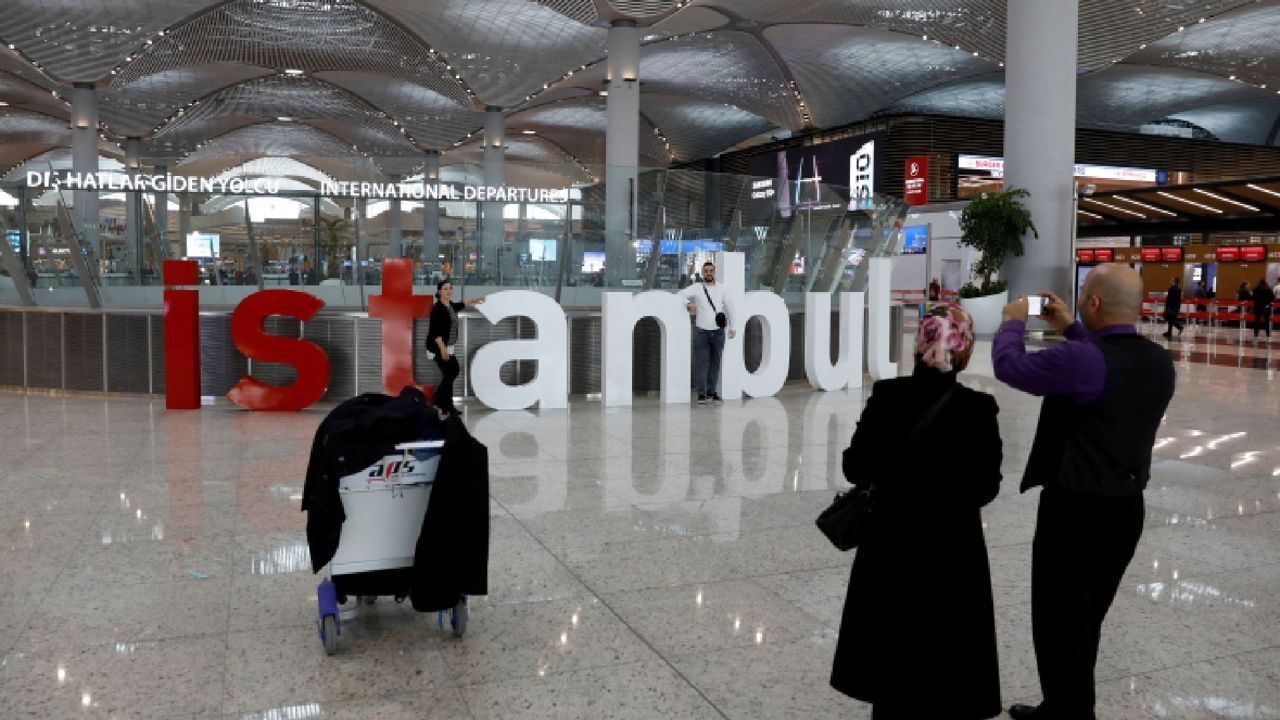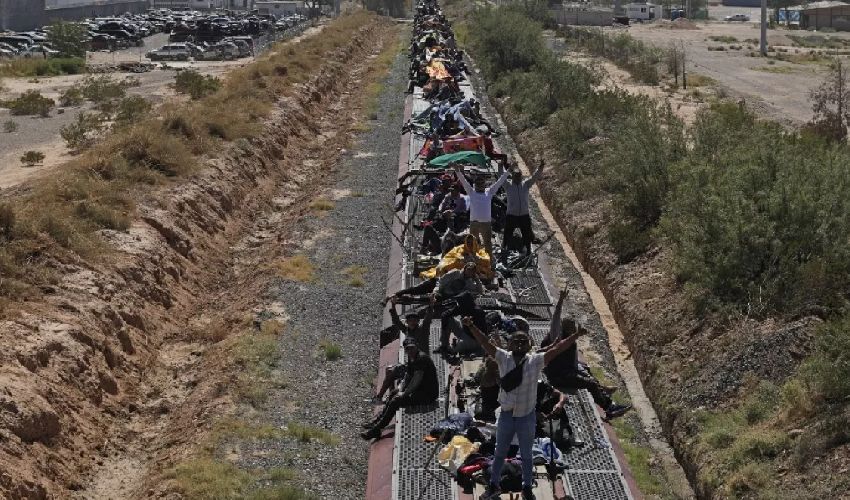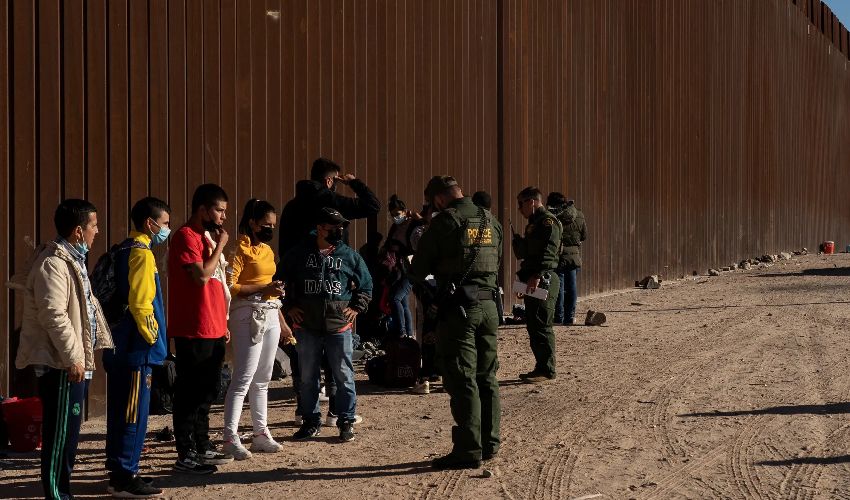Central Asians face detour as Turkish route to Americas narrows
Turkish Airlines tightens boarding rules for Central Asian and Russian travelers headed to Latin America

Saltanat and her spouse recently purchased round-trip tickets from Moscow to Dubai but have no intention of returning.
The pair, who are both Tajikistan and Russian citizens, view the United Arab Emirates as a layover point at the beginning of a lengthy journey aimed at ultimately reaching the United States via Mexico.
"We initially planned to travel to Mexico from Istanbul, but after learning from Telegram that Turkish Airlines is prohibiting individuals from Russia and other former Soviet nations from boarding flights to Latin America, we altered our plans," stated Saltanat, who preferred not to disclose her surname.
Numerous travelers from Central Asia, Russia, and the Caucasus have recently been prevented in Istanbul from boarding Turkish Airlines flights bound for Mexico and various other Latin American countries – popular transit stops for migrants endeavoring to reach the U.S. border.
Turkish Airlines declared the implementation of "additional screenings" for passengers heading to Mexico, Brazil, Colombia, Cuba, Colombia, and Venezuela.
Aside from a visa, passengers are now mandated to present return tickets, fully paid hotel bookings, and evidence of adequate funds for their journey. Türkiye itself does not mandate travel visas for individuals from Russia and Central Asian countries, with the exception of Turkmenistan.
These limitations are widely perceived as part of multinational initiatives to curb the surge of migrants to the United States, which experienced a record-breaking 2.5 million migrant encounters at its southwestern borders in 2023, with many others successfully entering without detection.
Last year, the number of migrants from Central Asian countries rose significantly, with over 50,000 individuals from the region illegally entering the U.S. Among them were approximately 17,000 from Uzbekistan, 7,000 from Kyrgyzstan, 3,000 from Tajikistan, 2,700 from Kazakhstan, and about 2,000 from Turkmenistan.
The substantial influx of illegal migrants, including nationals from Central Asia, continues unabated this year, as per U.S. statistics.
In a single U.S. border sector, San Diego, California, 140,000 illegal migrants, including around 2,500 Uzbek citizens, 500 Tajiks, and about 400 Kyrgyz nationals, have entered the United States since the onset of 2024, according to data from U.S. Customs and Border Protection.

Trapped in Istanbul
Stranded travelers impacted by the recent restrictions in Istanbul, the hub of Turkish Airlines, have reported significant financial losses in ticket fares and other expenses.
Most passengers were unable to secure refunds because they had purchased the most economical, nonrefundable tickets. Some have been marooned for days at the airport or elsewhere in the city, incurring additional costs for accommodations and meals while still hoping for permission to fly.
"I know families who have been at the airport or staying at hotels, paying around $115 per night," shared a Kyrgyz-born Russian national.
Speaking anonymously, the individual informed U.S.-backed broadcaster Radio Free Europe/Radio Liberty (RFE/RL) Kyrgyz Service that he traveled to Cancun, Mexico, in February but was repatriated to Istanbul. Although the reason for his deportation was not disclosed, he acknowledged his intent to use Mexico as a transit point to reach the United States.
Upon returning to Istanbul, he procured tickets to fly to another Latin American country but was denied boarding. The man disclosed that he had already expended $15,000 during the unsuccessful journey.
Certain Russian passengers were purportedly barred from boarding flights despite possessing return tickets and hotel reservations due to either lacking prior visas in their passports or carrying only hand luggage for their purported extended vacation in Cancun. Their actions reportedly raised suspicions regarding their ultimate destination being the U.S. border.
For Saltanat and her spouse, Turkish Airlines's new regulation represents a mere "minor inconvenience" that will not impede their pursuit of the American dream.
"Upon learning about it, we promptly began exploring countries that do not necessitate a visa for us and from where we can travel to Mexico," Saltanat shared with RFE/RL. "We opted for the United Arab Emirates. With our Russian passports, we can travel visa-free to both the UAE and Mexico."
Saltanat did not disclose whether they have secured tickets for all legs of their journey or if they plan to purchase subsequent tickets while in Dubai.
A 'minor inconvenience'
Saltanat's husband, a prosperous construction business owner in Russia, aspires to build a better life in the U.S. Both in their early thirties, the couple will be accompanied by their intimate friends and neighbors – a married pair from Kazakhstan.
With the Istanbul route no longer viable, Saltanat's companions are also exploring alternative routes to reach Mexico, she noted.
"They were preparing to journey through Türkiye to Brazil and then proceed to Mexico via some South American countries, potentially engaging (smugglers)," Saltanat revealed. "We aspire to reunite as neighbors in America one day."
Fully cognizant of the challenging journey ahead, fraught with risks of imprisonment, abduction, or even death before reaching the U.S., Saltanat remains resolute, stating, "Numerous Russians and Central Asians have successfully made it to America, with only a few facing deportation."
Saltanat's husband intends to seek asylum owing to the looming threat of conscription into the Russian military and deployment to the conflict in Ukraine.
The couple has received insights from their Central Asian migrant acquaintances in the U.S., indicating that even in the event of an asylum denial, it could take years for their case to be processed and potentially appealed.
Under prevailing U.S. legislation, most asylum-seekers are granted work permits while their cases undergo review by under-resourced immigration courts grappling with substantial backlogs.
Saltanat and her spouse remain steadfast in their belief that they will ultimately achieve their aspiration of residing and working in America.
Source: Newsroom








